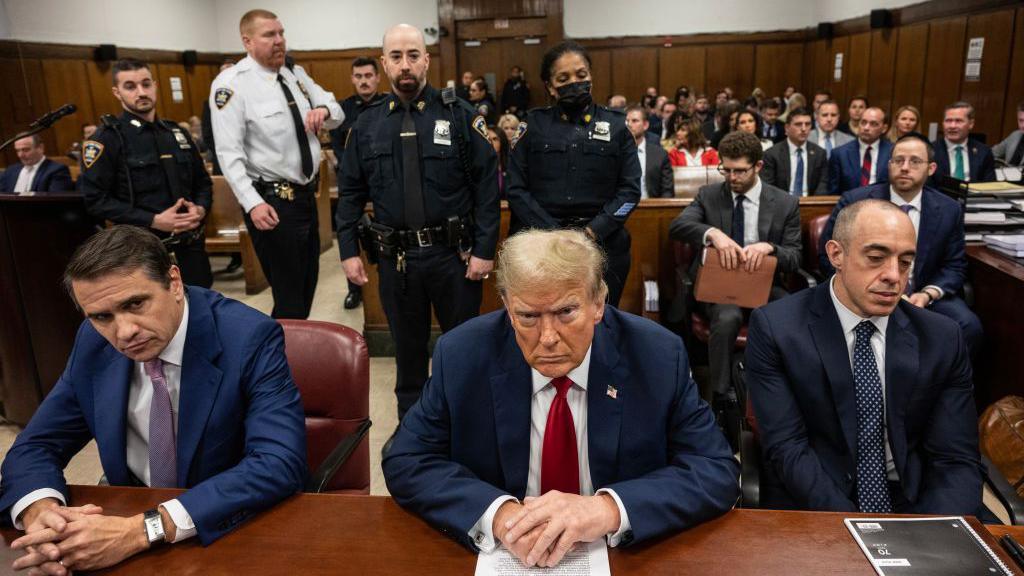Judge delays Trump sentencing for a third time

Donald Trump attends his New York criminal trial
- Published
A New York judge again delayed Donald Trump's sentencing in his historical criminal case as he continues to push for the conviction to be tossed.
Trump, who was found guilty of 34 felony fraud counts in May, was supposed to be sentenced on 26 November - less than two months before his presidential inauguration.
His lawyers argue that his conviction should be thrown out on the grounds of presidential immunity, and because sentencing would interfere with his duties as president.
The Manhattan district attorney who prosecuted Trump is fighting for the sentencing, but has suggested that it could wait until after Trump's second term.
On Friday, in what Trump's team is calling a victory, Justice Juan Merchan paused all proceedings until he receives further arguments from both parties in December.
But the court is now up against a ticking clock to decide what's next, as Trump's inauguration in late January grows ever closer.
In May, a New York jury found Trump guilty on dozens of counts of falsifying business records.
The charges stemmed from Trump's efforts to disguise reimbursements to his personal lawyer, who had made a hush-money payment to an adult film star to silence her claims of a sexual encounter with Trump.
Prosecutors successfully argued that the payoff, which happened just days before the 2016 election, was tantamount to election interference because it kept potentially damaging allegations from voters.
Trump has long denied any wrongdoing and cast the case as politically motivated. He has maintained that he did not have a sexual encounter with the woman, Stormy Daniels.
āIn a decisive win for President Trump, the hoax Manhattan Case is now fully stayed and sentencing is adjourned," said Steven Cheung, Trump's communications director, on Friday.
Since Trump's election, his attorneys have redoubled efforts to clear his conviction.
In July, the US Supreme Court ruled that presidents have immunity from criminal prosecution for certain official acts undertaken while in office.
That ruling stemmed from a battle over Trump's federal election interference case.
But Trump's attorneys in his New York criminal trial argue those protections should extend to this case as well.
The sentencing battle was postponed until after the election, which Trump won decisively on 5 November. Trump's lawyer, Todd Blanche, called for the "immediate dismissal of this case," because, he argued, such an outcome was required by the US Constitution and the Presidential Transition Act.
But this week, the Manhattan district attorney fired back, saying he planned to oppose any dismissal of the conviction. But he also acknowledged the unprecedented constitutional issues at play, and floated the idea that Justice Merchan could wait to sentence Trump until after his presidency in 2029.
On Friday, Justice Merchan ordered Trump's lawyers to file their full argument for dismissal by 2 December, several weeks before they had proposed.
Prosecutors must present their arguments to keep the conviction intact by 9 December.
The judge said it will not accept further reply briefs from either party after those deadlines.